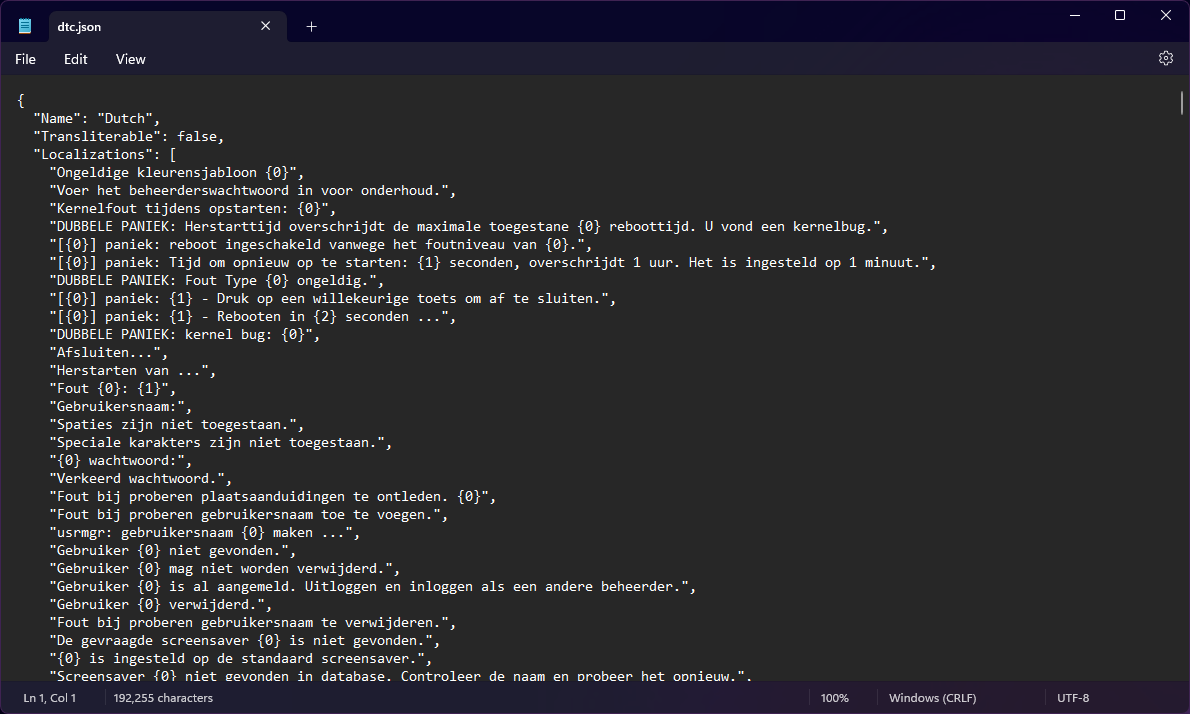Multilingual Kernel
Describes about the inner workings of the kernel language feature
The languages were introduced to the kernel to allow users who don't natively speak English or prefer their native language to use the kernel. This page explains the inner workings of the multilingual kernel.
JSON file format

The kernel languages use the JSON localization files that store the following information:
Name: The name of the languageThe type of this variable is a string
Transliterable: Whether the language contains the-Tvariant or not (transliterated vs. translated)The type of this variable is a boolean
Localizations: Contains translated stringsThe type of this variable is an array of strings
The source of the generated JSON files come from Nitrocid.Locales, a tool shipped with the kernel.
Translation
Before the translation process, the language manager needs to know what are the defined languages, including the custom ones. This processing is done by calling the LanguageManager.Languages property under the KS.Languages namespace.
The translation function, Translate.DoTranslation(), checks to see if the language exists by calling the above property and checking for the language key to see if it exists. If it's found, and the translation is needed (eng is not a current language), it calls the LanguageInfo version.
Finally, the overloaded function checks to see if the string is found within the translated strings. If it found one, it returns the translated string. Else, it surrounds the string with the (( and the )) signs to indicate that the locale data for this string is missing.
When the user is logged in, the kernel checks for preferred language value defined in the user configuration file.
If preferredlanguage is not defined, it'll fallback to the kernel language. Else, it uses the user preferred language.
To learn more about custom languages and how they work, click on the button below:
Custom LanguagesLocalizedString struct
LocalizedString structThe LocalizedString struct allows you to easily store both the original untranslated text and the localized translated text. You can easily create a new instance of this struct by casting it either implicitly or explicitly to a string.
The struct contains the following properties:
Original: The original string that was passed to the constructorLocalized: The string that is localized to the current language
You can get the localized string by either using the ToString() function, by getting the value of Localized property, or by casting the struct either implicitly or explicitly to a string.
This is useful when defining variables that don't necessarily get regenerated dynamically. You should still use those variables to get the translated versions, given that those variables already provide fields or properties that use this struct.